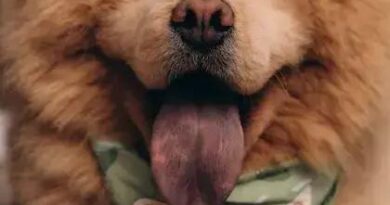What is bite inhibition
What is Bite Inhibition?
Bite inhibition refers to a dog’s ability to control the force of its bite. This crucial skill is developed during the early stages of a dog’s life, particularly through interactions with littermates and their mother. Puppies learn to modulate their biting pressure during play, which helps them understand how to interact safely with humans and other animals. This natural learning process is vital for preventing injuries and ensuring safe play.
The Importance of Bite Inhibition
Understanding bite inhibition is essential for dog owners and trainers alike. A dog that has learned to inhibit its bite is less likely to cause harm during playful interactions or when feeling threatened. This skill not only contributes to the safety of those around the dog but also enhances the dog’s social skills, allowing for more positive interactions with both humans and other dogs. Proper bite inhibition can significantly reduce the risk of dog bites, making it a critical aspect of canine behavior training.
How Do Dogs Learn Bite Inhibition?
Puppies typically learn bite inhibition through play with their littermates. When a puppy bites too hard, its siblings will yelp or stop playing, teaching the puppy that excessive force leads to negative consequences. This feedback loop is essential for developing self-control and understanding the limits of acceptable behavior. Additionally, interactions with humans, where gentle play is encouraged and rewarded, further reinforce this important skill.
Training Techniques for Bite Inhibition
Training a dog to develop bite inhibition can be achieved through various techniques. One effective method involves using toys during playtime to redirect biting behavior. If a dog bites too hard, the owner can stop the play session immediately, signaling that the behavior is unacceptable. Positive reinforcement, such as treats and praise for gentle play, can also encourage the dog to use softer bites. Consistency in training is key to reinforcing these behaviors.
Signs of Poor Bite Inhibition
Dogs with poor bite inhibition may exhibit aggressive tendencies or bite too hard during play, leading to injuries. Signs of this issue can include excessive mouthing, biting during excitement, or a lack of response to cues from humans or other dogs. Recognizing these signs early on is crucial for implementing effective training strategies to improve bite inhibition and ensure safe interactions.
Age and Bite Inhibition Development
The critical period for developing bite inhibition typically occurs between 3 to 14 weeks of age. During this time, puppies are most receptive to learning from their peers and their environment. After this period, it becomes more challenging to teach bite inhibition, although it is still possible with consistent training and reinforcement. Understanding the developmental stages of a puppy can help owners provide the right experiences to foster this important skill.
Socialization and Bite Inhibition
Socialization plays a significant role in the development of bite inhibition. Exposing puppies to various environments, people, and other animals helps them learn appropriate behaviors and responses. Positive social experiences can reinforce bite inhibition, as puppies learn to navigate different situations without resorting to biting. Owners should prioritize socialization during the early weeks to promote healthy interactions throughout the dog’s life.
The Role of Professional Training
For dog owners who struggle with teaching bite inhibition, seeking the help of a professional trainer can be beneficial. Trainers can provide tailored strategies and techniques to address specific issues related to biting behavior. Professional guidance can ensure that training is conducted safely and effectively, helping to instill bite inhibition in dogs of all ages.
Common Myths About Bite Inhibition
There are several misconceptions surrounding bite inhibition. One common myth is that all dogs naturally know how to control their bites. In reality, this skill must be taught and reinforced through proper training and socialization. Another myth is that bite inhibition is only important for aggressive dogs; in fact, all dogs benefit from learning this skill to ensure safe interactions during play and daily life.



